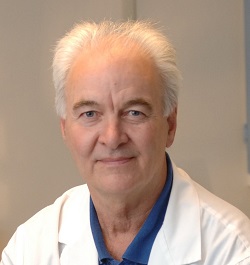
Cognitive scientists argue that any kind of reasoning and decision making can be improved by improving individual rationality. So, there is a need to focus on the constituent parts of rationality and on those that can be improved. Probably, the first step is to establish how decision making actually occurs. The dominant approach for all human decision making is the dual process model (DPM). It is deemed an essential part of understanding clinical decision making and will be described here. The Dalhousie model of clinical reasoning will also be described. It illustrates the essential components of rationality, using the DPM as a platform. The influence of cognitive and affective biases, logical failures, elements of critical thinking, mindware, and cognitive bias mitigation will be described.
Major Topics:
Attendees will learn to:
- To gain an appreciation of the dominant model of decision making – dual process theory
- To understand how cognitive biases may distort our decision making
- To appreciate how critical thinking and bias mitigation may improve clinical reasoning and decision making
Affiliations:
His research is principally concerned with clinical decision-making, especially the processes that lead to diagnostic failure. He has published over 60 papers and 40 book chapters in the areas of patient safety, clinical decision making, and medical education reform. Two of his papers are in the top 5 cited papers in the emergency medicine education literature. He is senior editor on a major text Patient Safety in Emergency Medicine published in 2009, and senior author of Diagnosis: Making Sense of the Shadows published in 2017. A third book The Cognitive Autopsy is forthcoming in 2019.
He was appointed Director of the Critical Thinking Program at Dalhousie Medical School, and a Fellow of the Royal College of Physicians of Edinburgh in 2012. He was appointed to the US Institute of Medicine Committee on Diagnostic Error in Medicine in 2014. In 2015-16 he was a member of the Expert Advisory Panel of SIDM for the NASA Cognition and Space Flight Project He was nominated to the Canadian Association of Emergency Physicians Top Ten List of most impactful Canadian medical educators in 2016.
Pat Croskerry is Professor in Emergency Medicine and in the Division of Medical Education at Dalhousie University, Halifax, Nova Scotia, Canada. In addition to his medical training, he holds a doctorate in Experimental Psychology and Fellowship in Clinical Psychology. In 2001 he implemented the Halifax Series in Patient Safety, a national conference that ran annually across Canada for 10 years. In 2006 he received the Ruedy award from the Association of Faculties of Medicine of Canada for innovation in medical education, and in the same year was appointed to the Board of the Canadian Patient Safety Institute.
His research is principally concerned with clinical decision-making, especially the processes that lead to diagnostic failure. He has published over 60 papers and 40 book chapters in the areas of patient safety, clinical decision making, and medical education reform. Two of his papers are in the top 5 cited papers in the emergency medicine education literature. He is senior editor on a major text Patient Safety in Emergency Medicine published in 2009, and senior author of Diagnosis: Making Sense of the Shadows published in 2017. A third book The Cognitive Autopsy is forthcoming in 2019.
He was appointed Director of the Critical Thinking Program at Dalhousie Medical School, and a Fellow of the Royal College of Physicians of Edinburgh in 2012. He was appointed to the US Institute of Medicine Committee on Diagnostic Error in Medicine in 2014. In 2015-16 he was a member of the Expert Advisory Panel of SIDM for the NASA Cognition and Space Flight Project He was nominated to the Canadian Association of Emergency Physicians Top Ten List of most impactful Canadian medical educators in 2016.